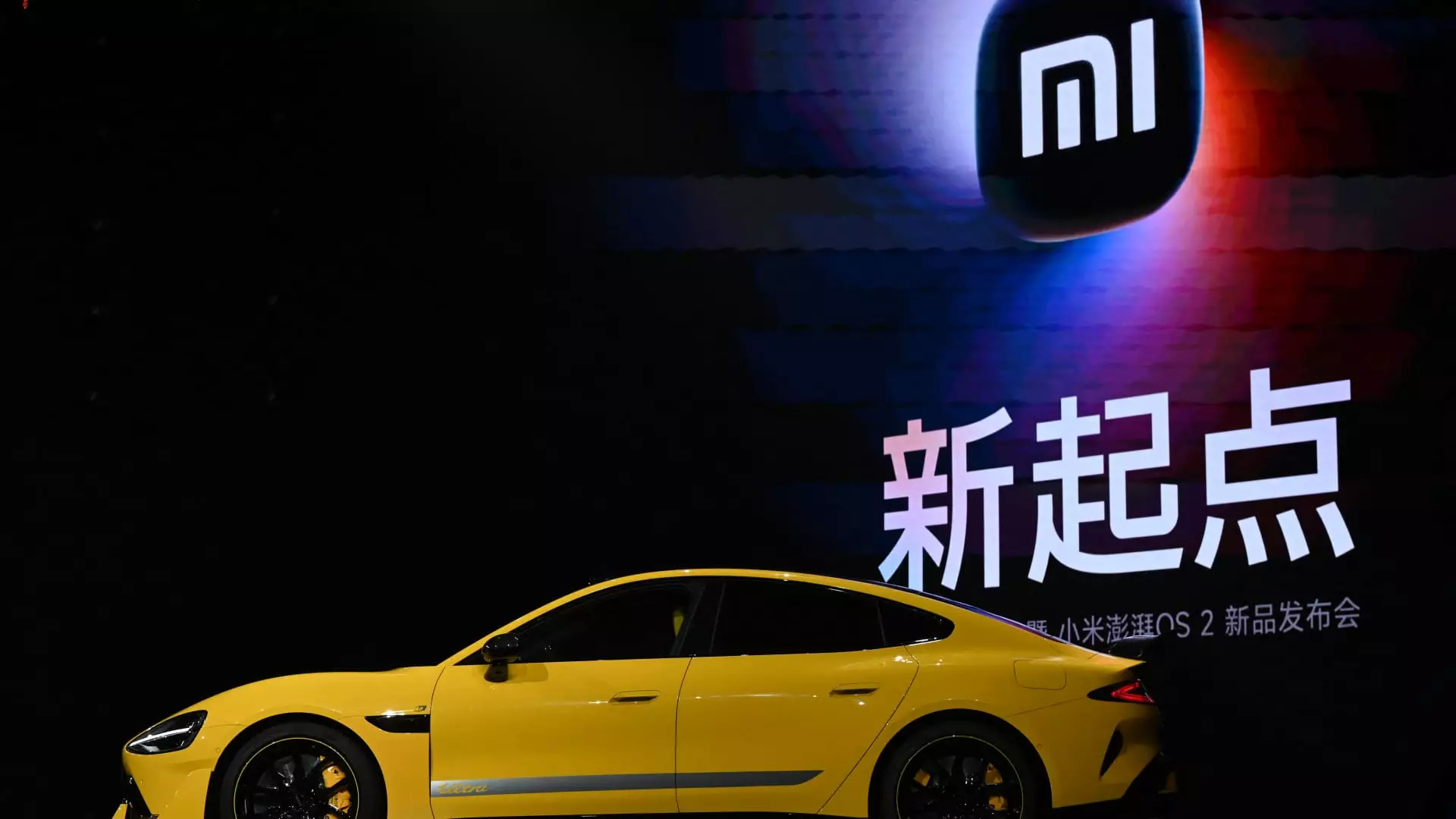In recent years, the electric vehicle (EV) market has become one of the most competitive and rapidly evolving sectors in the automotive industry. Notably, Xiaomi, a brand primarily recognized for its smartphones and smart home appliances, has made significant strides in this arena. By October, Xiaomi revealed a remarkable milestone in its electric car venture, having delivered over 20,000 units of its SU7 model in just one month. This surge in deliveries underscores Xiaomi’s ambitions to establish itself as a formidable player in the global electric vehicle landscape.
Xiaomi’s goal is to deliver a staggering 100,000 SU7 vehicles by the end of November. This ambition stems from its strategic planning initiated in 2021, when Xiaomi first announced its intentions to enter the automotive space. The establishment of a dedicated manufacturing facility was crucial in this pursuit, launching the company into a competitive framework as it sought to rival established players such as Tesla, Xpeng, and Nio. To capitalize on market opportunities, Xiaomi positioned the SU7 at a competitive price, roughly $4,000 lower than the Model 3 during its release. This pricing strategy is reflective of the broader trend in the industry, where companies vie to capture market share with enticing offers.
Thus far, Xiaomi has successfully delivered over 75,000 SU7 vehicles, a noteworthy achievement considering rivals like Xpeng took six years to reach a similar production milestone. This rapid delivery pace suggests that Xiaomi has swiftly navigated the complexities of car manufacturing, though challenges remain evident as the market becomes increasingly saturated.
In a market where speed and innovation often dictate success, Xiaomi’s aggressive approach is commendable. Compeititors like Xpeng, which recorded over 20,000 units delivered in September but credited half of its sales to a newly launched budget brand, illustrate the shifting strategies within the industry. Meanwhile, Nio has struggled to maintain similar figures, indicating that a compelling product alone is insufficient without robust operational strategies. Zeekr, founded by Geely, has also illustrated rapid growth, delivering 100,000 vehicles in just 1.5 years. These dynamics reflect an ongoing battle to achieve consumer loyalty and sustain high sales volumes.
According to analyst Brian Tycangco from Stansberry Research, Xiaomi’s October deliveries signal its potential to be a dominant force in the world’s largest EV market. This perspective highlights the criticality of innovation and production efficiency within the current automotive narrative, where established players are challenged by disruptive newcomers.
In tandem with its production advancements, Xiaomi is also expanding its product offerings. The announcement of the SU7 Ultra, a high-end variant, showcases the company’s intent to target affluent consumers willing to invest in premium EVs. With a starting price of 814,900 yuan (approximately $114,304), the SU7 Ultra promptly garnered over 3,600 preorders within ten minutes of its announcement—indicating a strong consumer interest. This model’s high-performance benchmarks, particularly its record-setting time on the Nurburgring race track, could further reinforce Xiaomi’s reputation for quality and innovation.
Market analysts, such as those from Citi, have adjusted their forecast for Xiaomi’s car deliveries to 250,000 for the upcoming year, reflecting growing optimism about its market performance. Coupled with recent advancements like Xiaomi’s flagship Mi 15 smartphone utilizing Qualcomm’s latest chipset, the company appears poised for comprehensive growth across multiple tech domains.
Xiaomi’s push into the electric vehicle market represents not just a diversification of its brand but a strategic maneuver aimed at challenging established automotive titans. By leveraging its strengths in technology and aggressive pricing, Xiaomi is positioning itself as a significant competitor within an area that continues to evolve rapidly. Moreover, the company’s ability to achieve impressive sales figures in a matter of months indicates its potential for long-term success. However, as competition intensifies and market dynamics shift, Xiaomi will need to sustain innovation and operational efficiency to solidify its position in this fast-paced industry.

Leave a Reply